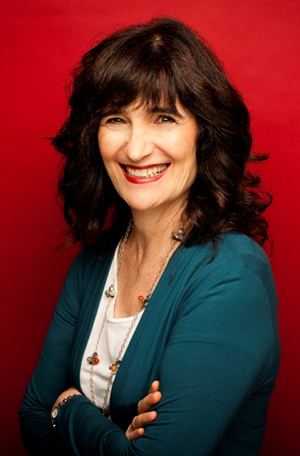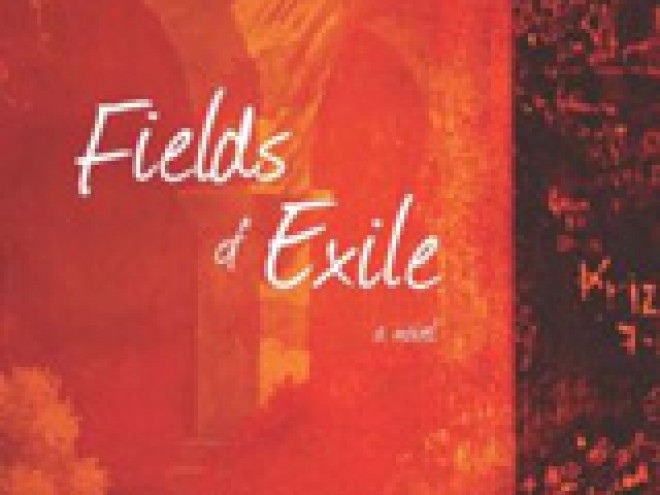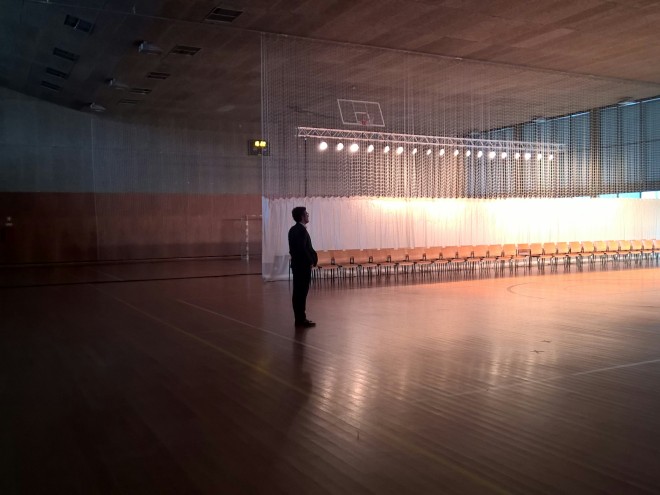Yesterday, Nora Gold wrote about Leah Goldberg, poetry, and the title for her newest book, Fields of Exile. She has been blogging here all week for Jewish Book Council and MyJewishLearning.
 A few days ago my novel, Fields of Exile, was published in the USA, and this month marks exactly four years since I started the free online literary journal that I created and edit, JewishFiction.net. The convergence of these two events has got me thinking about solitariness and community in the lives of writers.
A few days ago my novel, Fields of Exile, was published in the USA, and this month marks exactly four years since I started the free online literary journal that I created and edit, JewishFiction.net. The convergence of these two events has got me thinking about solitariness and community in the lives of writers.
I feel very fortunate to be both a writer and the editor of JewishFiction.net. Writing is a solitary activity, and this journal provides me with a kind of community since producing it occurs in communal, social space. In our first four years, JewishFiction.net has published 186 first-rate works of fiction (stories or novel excerpts) that had never previously been published in English, and that were originally written in eleven languages and on five continents. We’re honoured to have published some of the most well-known Jewish writers living today, as well as many fine writers who are not yet well-known.
I’m often asked why I started JewishFiction.net, and the answer is that — in light of the crisis in the publishing industry — I was concerned that a lot of the great Jewish fiction being written now around the world would get lost. Recently, though, reflecting on the upcoming fourth birthday of Jewish Fiction.net, I recognized another, subtler antecedent to the birth of this journal.
My paternal grandmother, Leah Shteinman Gold, strongly believed that she (and everyone else) had an obligation to support Jewish writers and artists. I heard her say more than once, “We have to feed our poets.” She meant this not only figuratively — she was generous in her encouragement and appreciation for their work — but also literally. In the world she lived in, Yiddish-speaking Montreal, her home was a haven for struggling poets, writers, and intellectuals, and she often fed them actual meals. Some of my less charitable relatives referred to these people as “shnorrers,” but my grandmother stoutly rejected this characterization. “They are our writers,” she’d say. “We have to support them. They’re the future of our culture.”
She also helped these writers by always trying to find work for them. One result of this was that my father learned his bar mitzvah portion from the great poet Yud Yud Segal, and one of my brothers and I got weekly lessons in Yiddish language and literature from Sholem Shtern, another fine poet. I remember how, whenever Lerer (Teacher) Shtern came to our home for a lesson, first of all he’d receive a cup of coffee coffee and a bagel. For me, therefore, food and literature became intimately intertwined. One fed a Yiddish poet and he fed you Yiddish poetry.
As I reminisce about this now, perhaps it’s not surprising that I started a journal to help Jewish writers. Maybe this impulse runs in my blood. But here’s what’s surprising about it. In giving JewishFiction.net to the international Jewish literary community, I got something back. In feeding other writers, I’ve been fed, too. Through bringing together writers from around the world and introducing them to each other, and introducing all these writers to our journal’s large readership, I’ve met many interesting, delightful writers from Australia, Serbia, Argentina, Israel, Russia, Romania, Spain, Poland, France, Croatia, Iraq, the UK, and of course North America.
What I have been given — what I have received — from JewishFiction.net is something incomparably precious: a literary community, maybe even a literary home. And what greater gift could there be to any writer, struggling alone in solitariness, than to know that one’s work is being — even if invisibly — supported, cherished, and appreciated, and that in our solitary writing lives, we are not alone?
Nora Gold’s book, Fields of Exile, is the first novel about anti-Israelism on campus. Gold is also the author of the acclaimed Marrow and Other Stories, the creator and editor of the prestigious online literary journal JewishFiction.net, a blogger for “The Jewish Thinker” at Haaretz, the Writer-in-Residence and an Associate Scholar at CSWE/OISE/University of Toronto, the organizer of the Wonderful Women Writers Series, and a community activist. Gold can be contacted through her website here.
Related Content:
- Essays: On Writing Jewish Literature and Being a Jewish Writer
- Pearls of Yiddish Poetry by Joseph and Chana Mlotek
- Arguing with the Storm: Stories by Yiddish Women Writers edited by Rhea Tregebov
- What is Jewish Literature? by Ellen Frankel
Dr. Nora Gold is the prize-winning author of five books. Her first book, Marrow and Other Stories, won a Vine Canadian Jewish Book Award and was praised by Alice Munro. Fields of Exile, the first novel about anti-Israelism on campus, won the inaugural Canadian Jewish Literary Award for best novel, and was acclaimed by Ruth Wisse and Irwin Cotler. The Dead Man received a Canada Council for the Arts translation grant and was published in Hebrew in Israel. 18: Jewish Stories Translated from 18 Languages, an anthology of translated works, was praised by Publishers Weekly, Cynthia Ozick, and Dara Horn. Gold’s newest book, coming out March 1, 2024, is In Sickness and In Health/Yom Kippur in a Gym (two novellas).
In addition, Gold is the founder and editor-in-chief of the prestigious literary journal Jewish Fiction, which has readers in 140 countries and has published nearly 600 works of Jewish fiction, never before published in English, that were either written in English or translated into English from 20 languages. Gold is also the co-founder of three progressive Zionist organizations in Canada: Canadian Friends of Givat Haviva, New Israel Fund of Canada, and JSpaceCanada. Gold holds both Canadian and Israeli citizenship. noragold.com.



